Cornfield Ants (Lasius neoniger) are not ordinary ants crawling around cornfields or corn plants. They are small, light brown in color, and have large, black eyes.
These Cornfield Ants feed on dead insects or other organic matter found in the soil, such as insect eggs or larvae. They can also be seen foraging for food on the ground or climbing stalks of corn.
The nesting of Cornfield Ant colonies may be in cracks in the soil, under rocks, or inside fallen logs and other natural debris near the plantings.
Although they do not usually cause damage to crops, they can become a nuisance when they swarm on the ears of corn plants or invade homes looking for food sources.
It’s a common mistake to think that ants attack and eat corn.
Although they can be a nuisance, ants almost never actually feed on live plants as they aren’t able to digest them. This doesn’t mean they are completely harmless for your corn fields, though.
Ants crawling all over your corn plants are a sure sign of adult aphid population, or the infestation of scale insects, whiteflies, or mealybugs.
Ants have learned to farm these insects to harvest their sweet excretions, and in exchange, they protect them from predators and help them to spread all over your corn plants.
Ants themselves are actually beneficial for the garden as they carry out many essential functions for the balance of the ecosystem. Therefore, it’s usually best not to disturb them and to target the bugs directly since they are causing the damage.
Red Ants and Carpenter Ants could be considered the exception, as they can sometimes harm your corn plants.
- Related article: Ants in Indoor Plants
In this article, we will look at all of these aspects more in-depth, as well as at methods to get rid of ants and aphids naturally.
Are Ants on Corn Plants a Problem?
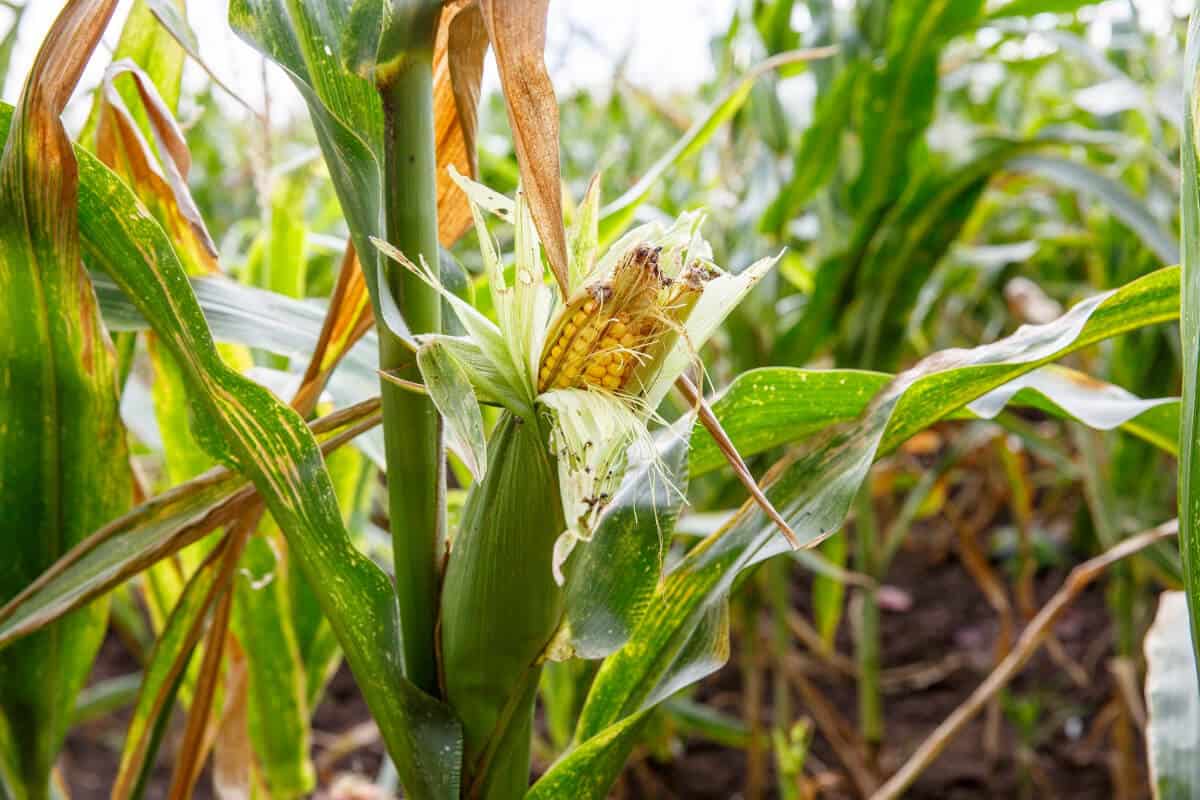
As anticipated, garden ants can cause problems for corn if they are farming aphids. This is the main reason why you might see ants on your corn plants.
Ants often get blamed for the damage of other pests, simply because they are easier to see.
In fact, they are much more interested in harvesting the sweet honeydew aphids excrete. They can also farm other insects, but aphids are by far the most common ones on corn plants.
Aphids are brown insects, but can also be black, purple, blue, yellow, orange, or green, and they are very voracious. You will recognize them after some practice because they assemble in clusters on the underside of leaves, and never move.
When aphids are present in your plants, ants will most likely follow. Ants will protect them from their predators and even move them to safer locations if necessary.
Aphids can be a real problem for your corn plants if their numbers grow too much as they can considerably weaken plants by sucking their sap and also carry diseases.
Finally, there are two species of ants that can directly damage corn plants, and these are Fire Ants and Carpenter Ants.
Fire Ants are tiny red ants that can sometimes eat the most tender parts of plants, but the main issue with them is for you rather than your plants.
These ants can sting if threatened, and while one sting is merely a nuisance, an attack by a fire ant colony could land you in the hospital.
Carpenter Ants are a problem for a whole different reason. Since they feed from wooden materials, both alive and dead, they could carve out your corn stalks, killing the plants.
Moreover, if these ants move from your garden to your home, they could cause significant structural damage.
Will Ants Eat Corn Plants?
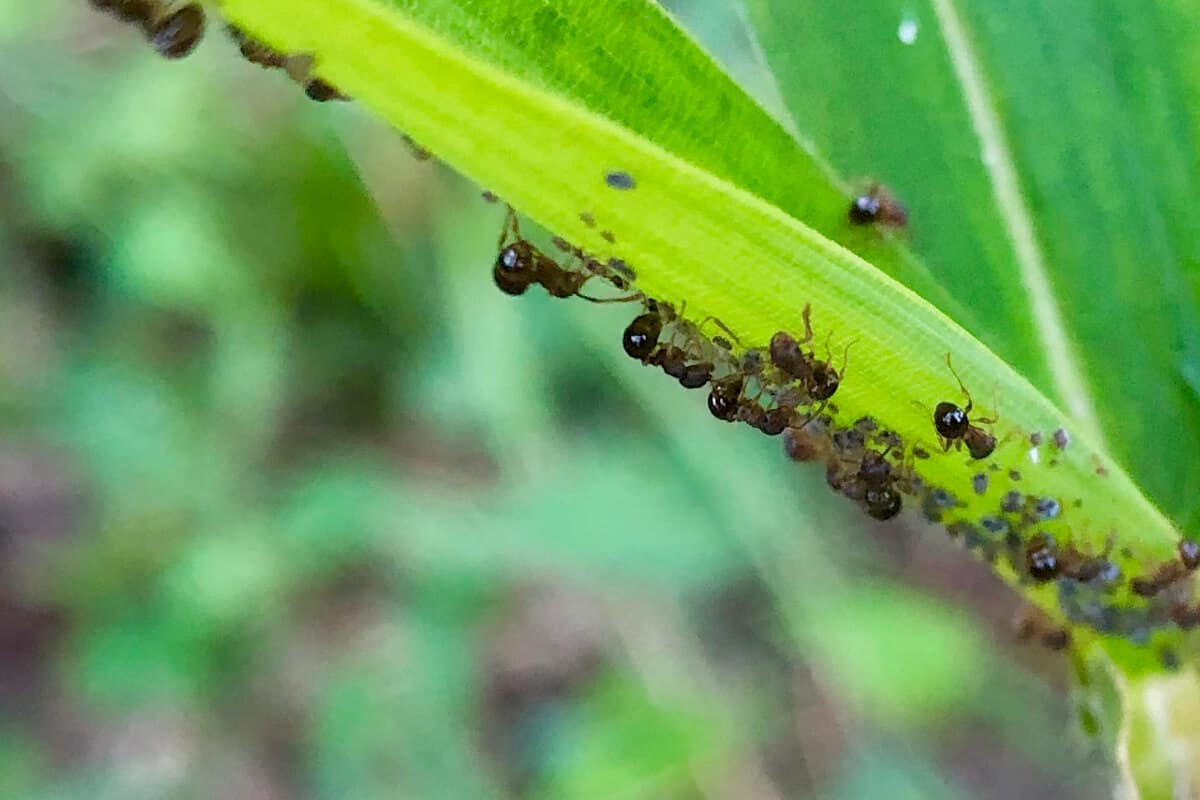
Ants are commonly seen crawling on corn leaves and stalks, but they almost never eat the plant.
It’s much more likely that grasshoppers or corn earworms are feeding from corn silks and kernels. Ants are there for different reasons.
Fire Ants have sometimes been observed eating live plants, but they usually concentrate their attention on young shoots, which are lower in fiber and easier to digest.
Carpenter Ants feed instead from the wooden parts of the corn plant, so if you see galleries excavated in the corn stalks, they could be responsible.
How Can Ants Help Corn Plants?
Despite their bad habit of nurturing aphids, ants can be very beneficial for corn plants, even if you might have a hard time believing it.
- Related: Are Ants Good for the Garden?
Here are the main reasons why you should consider letting the ant population in your garden thrive undisturbed:
1. Ants Protect Plants from Predators
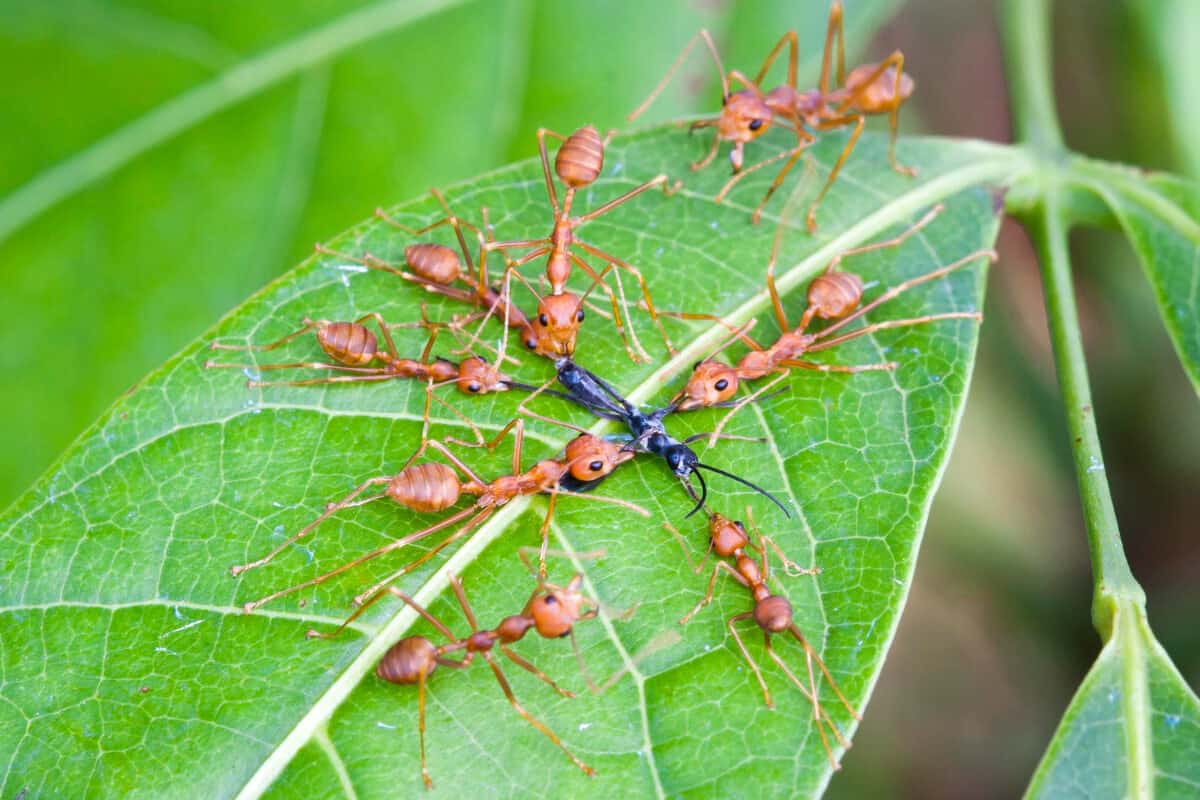
Ants aren’t exactly predators, as they prefer easier sources of food. Insect eggs and larvae though are some of their favorite delicacies, as they are nutritious and don’t require much effort.
In this way, ants help to control pests that might attack your corn plants.
2. Ants are Decomposers
One of the most important functions ants carry out is decomposing organic waste. Ants feed from any dead insects or dead material, be it a plant or an animal.
Their role is essential as they avoid the accumulation of this waste, which would mean the loss of many nutrients.
These instead get ‘recycled’ as they go back into the soil where they are available to plants.
3. Ants Aerate the Soil
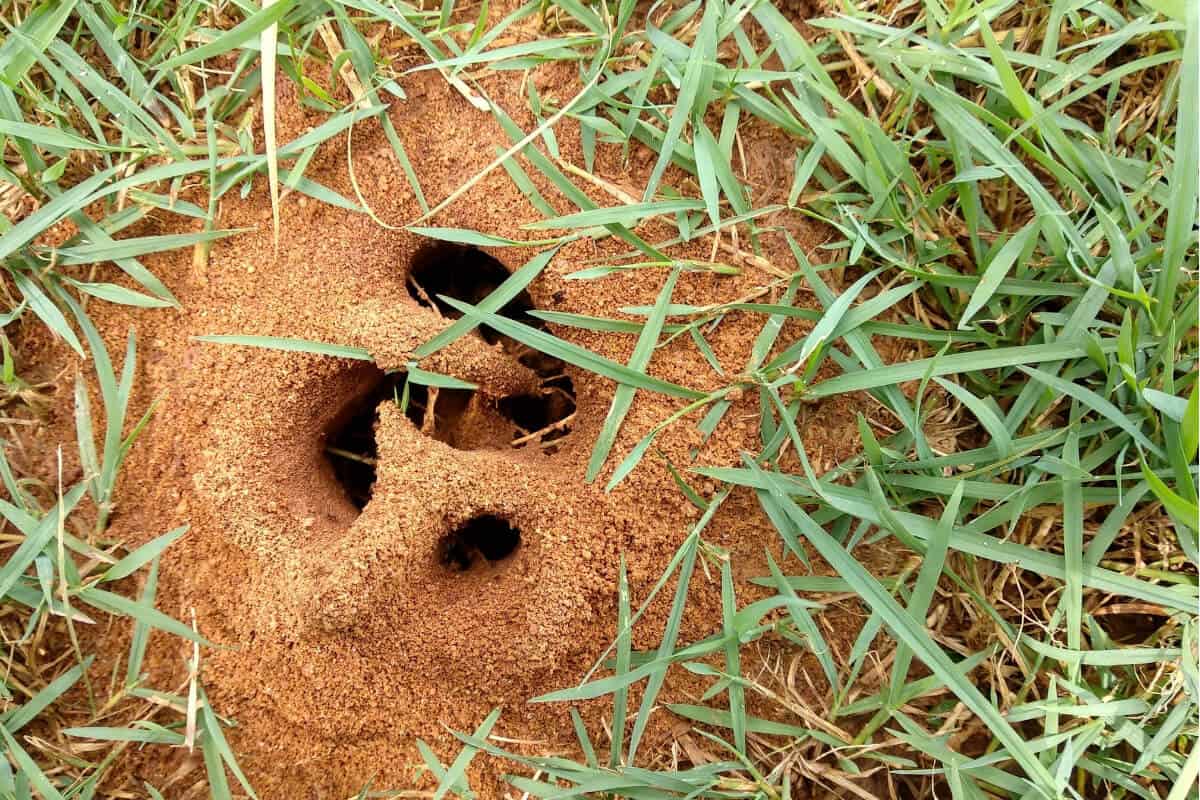
As ants live in the ground, they work rigorously to dig out a vast system of galleries that can house the entire colony.
The benefit for the soil is that these tunnels allow oxygen to travel more freely, as well as water. The roots of corn plants can then access these resources more efficiently.
Best Ways to Keep Ants Away from Corn Plants
If, after considering the benefits and the drawbacks of having ants on your corn plants, you have decided you still want to get rid of them, there are many ways of doing it naturally.
Using natural methods ensures that you will almost never harm other beneficial insects or the plants themselves.
The best option though is to always check if there are aphids, and in that case, to kill them off, as the ants will then lose interest in your corn plants.
1. Blast the Plants with Water
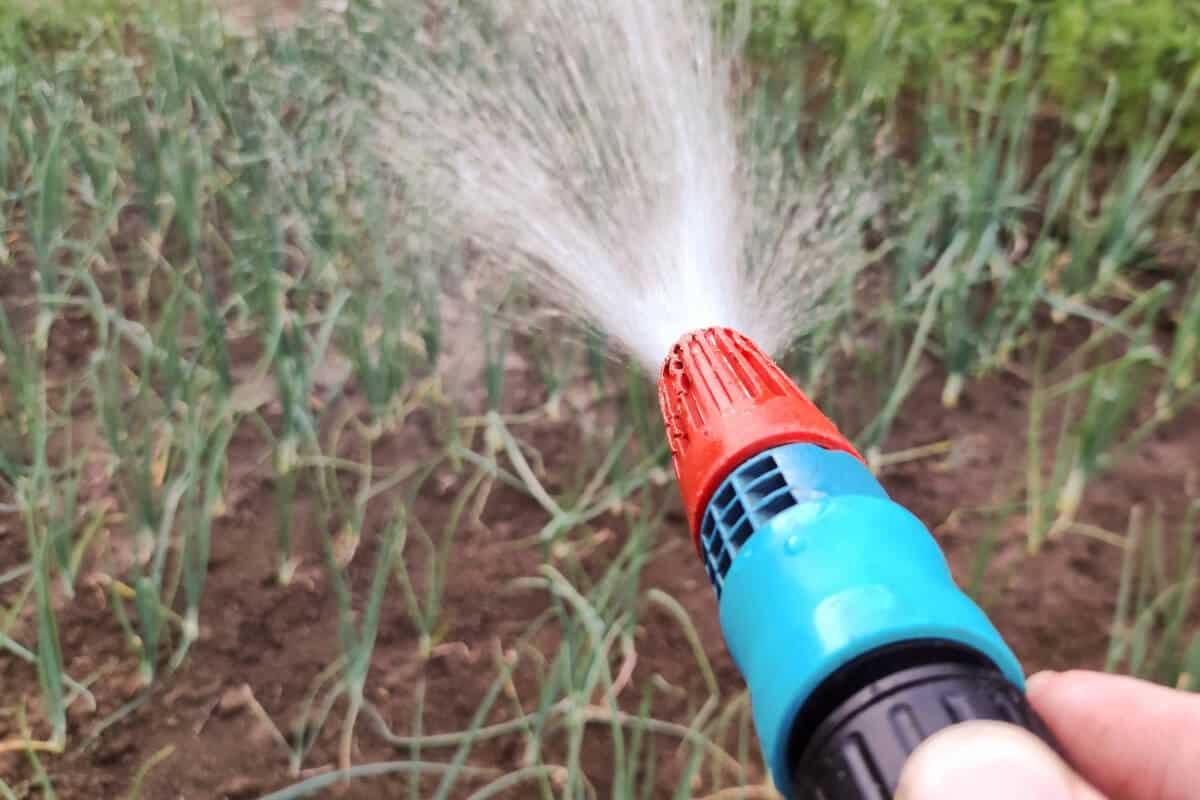
One of the best and easiest ways to get rid of aphids is to water the infested plants with a strong spray of water from a garden hose or spray bottle.
This will dislodge the aphids on corn, which will die before they are able to get back on a plant.
In the case of a huge infestation, you should repeat this often, even multiple times a day if possible.
The water will also be a bother for the ants. Though the ants will come back to the plants again and again as long as some aphids remain.
2. Treat with Insecticidal Soap or Horticultural Oil
These natural pest control products work against aphids, but only if sprayed directly on them. They kill the insects on contact and need to be applied more than once.
They are some of the safest to use for edible plants as they leave no residue behind.
Be mindful of using them only when the temperatures are below 90°, as they would otherwise be ineffective.
3. Prevent Aphid Infestations
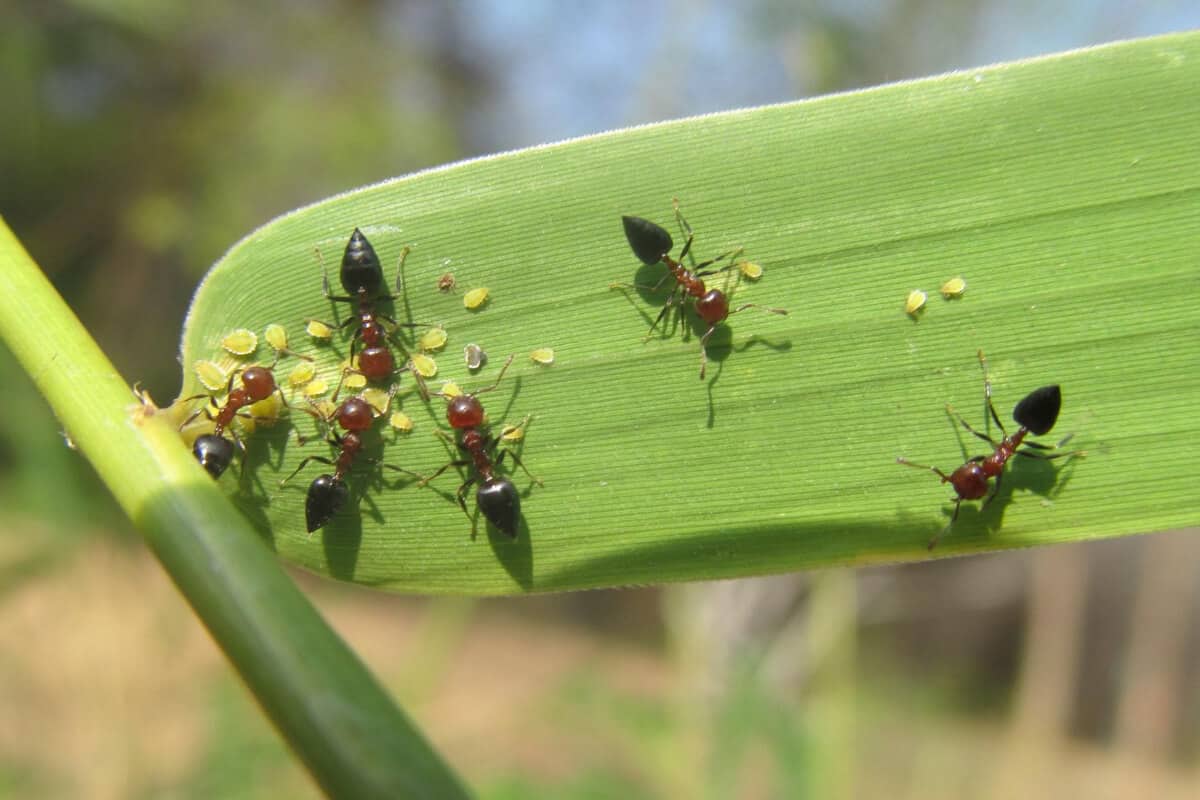
If you act early, you can avoid having to deal with aphids and ants altogether.
The best way to prevent pests is to maintain plant health, and fertile and healthy soil.
Cultural practices such as crop rotation and planting companion species can greatly improve the quality of your garden.
You can also add compost to your soil or make a compost tea that can be sprayed directly on the plants.
4. Biological Control
Against aphids, another option is to exploit their natural enemies. Among the insects that prey on aphids, the most helpful are green lacewings, ladybugs, and parasitic wasps.
Many times, these species might already be present in your area, and all you have to do to attract them is create an environment they can thrive in.
The more diversity you have in your garden, the most beneficial insects will move in, leading to a permanent solution for your aphid problem.
You can also purchase beneficial insects and release them in the garden, even if you should be careful of introducing a species that is native to your area.
Unfortunately, these aren’t always easy to find at reasonable prices.
5. Repel Ants
If you really can’t stand ants on your corn plants, there are methods to keep them away using their strong sense of smell against them.
As they dislike strong odors, sprinkling spices such as cinnamon, curry, or cayenne pepper around your plants can deter them from coming near them.
Learn more about Plants That Get Rid of Ants.
6. Kill Ants
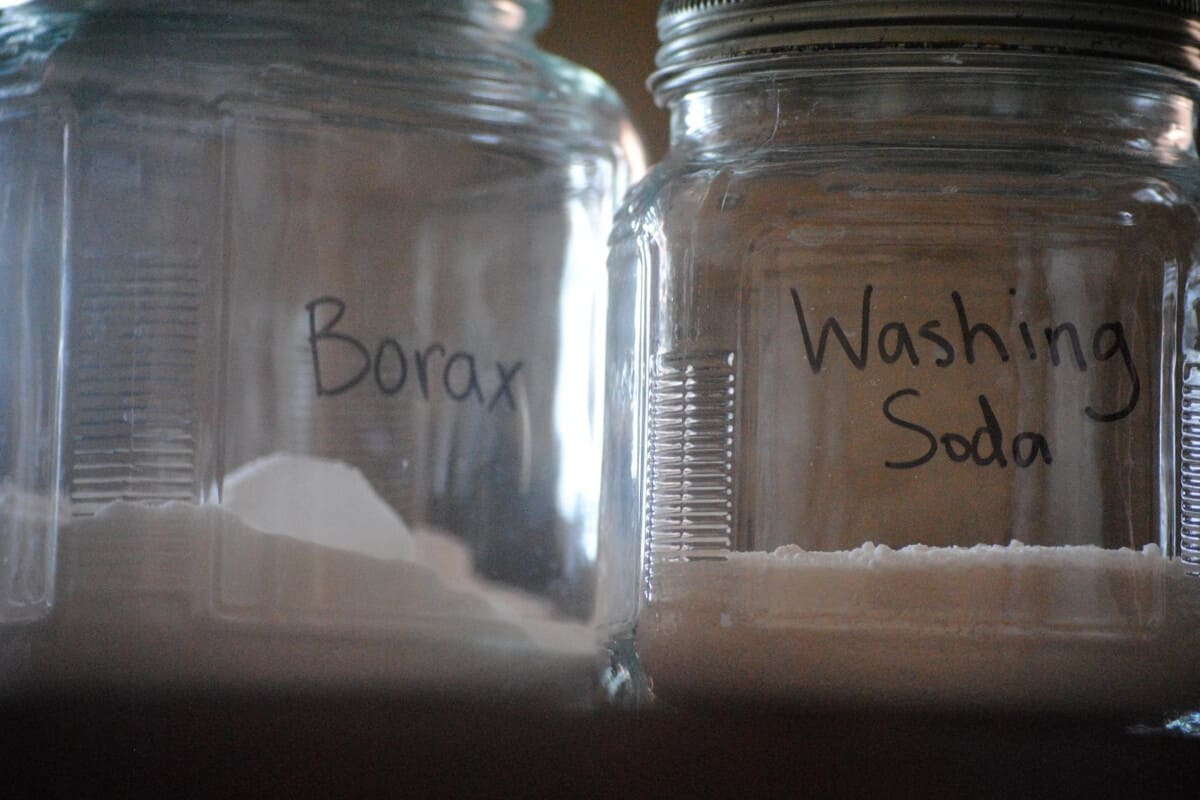
In extreme cases, you might choose to kill the ants. For example, if red ants or carpenter ants are causing significant damage to your plants.
In this case, you can bait them with borax and sugar, which they will carry back to their nest, killing the entire colony.
You can also sprinkle Diatomaceous Earth near your plants. This natural substance kills the ants on contact and doesn’t cause any collateral damage.
If you manage to locate the ant nests, you can also pour boiling water on it a few times.
Ants on Corn Plants Final Thoughts
Ants are fascinating insects that can be both beneficial and harmful to corn plants.
While they can defend corn plants from pests and diseases, they can also harm the crop by feeding on the plant’s sugar-rich substances or creating aphid infestations.
Therefore, it’s essential to understand the relationship between ants and corn plants before taking any action.
Overall, ants can be excellent companions for corn plants if they are managed appropriately, and their impact is carefully monitored.
With the right strategies, you can maximize the benefits of ants, minimize their potential negative effects on corn plants, keep your beautiful lawn and garden safe, and have a bountiful corn harvest!
Read these interesting articles for more information about ants on corn:
- Ants in Vegetable Garden Good or Bad
- Do Ants Eat Watermelon
- Ants on Sunflower Plants
- Ants on Potato Plants
- How to Keep Ants off Artichoke Plants
- Ants on Bean Plants
Sources:

